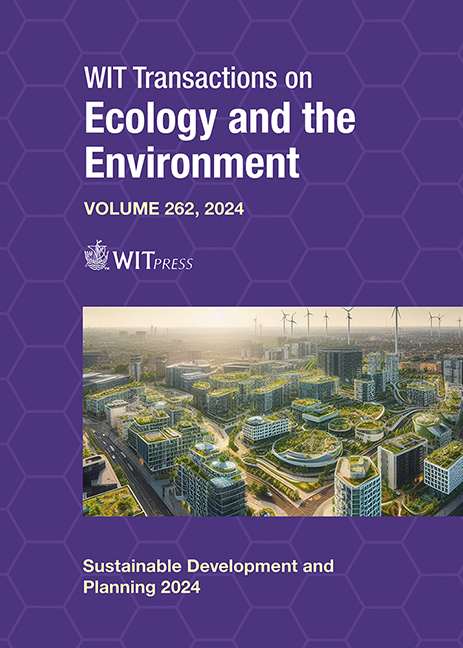FOREST FIRES AS A PUBLIC HEALTH CHALLENGE IN CHILE: THE CASE OF THE BIOBÍO REGION
Price
Free (open access)
Transaction
Volume
262
Pages
9
Page Range
787 - 795
Published
2024
Paper DOI
10.2495/SDP240651
Copyright
Author(s)
VALERIA SCAPINI, MARTÍN DEL BARRIO, ALFREDO PIZÁ
Abstract
Forest fires generate a series of negative consequences for people’s health and represent a growing threat to public health, with their increasing frequency and intensity due to climate change. In this sense, the case of central Chile is particularly interesting as it has a temperate climate characterized by hot and dry summers and has a high vulnerability to climate change. This paper assesses the association between the occurrence of forest fires and the number of emergency room visits for respiratory symptoms in primary care centres in the Biobío region. We focus on the Biobío region because it has been the most affected region in the last 30 years. An empirical study was carried out using data on forest fires provided by the National Forestry Corporation (CONAF), meteorological information on temperature and precipitation obtained from the Meteorological Directorate of Chile, and respiratory emergency data provided by the Ministry of Health for the period between 2010 and 2020. A regression model using ordinary least squares was developed to determine the effect of a forest fire on the number of admissions to emergency care visits for respiratory symptoms to public health centres, and we use meteorological control variables. The results were statistically significant and indicate that, on average, there was a 33% increase in the number of cases for respiratory symptoms in health centres located in areas exposed to forest fires. These results may be useful for the implementation of public health policies.
Keywords
forest fires, public health, respiratory diseases, climate change





